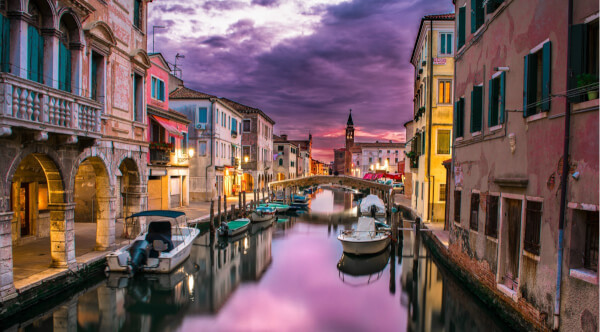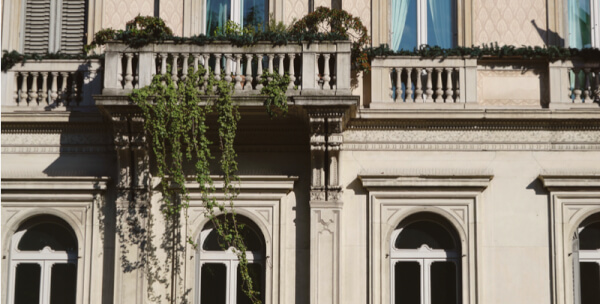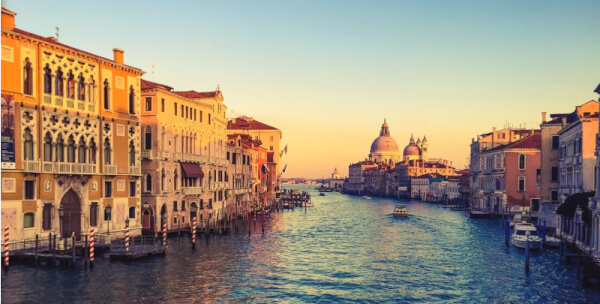Want Italian dual citizenship or nationality? Read this guide.
Here’s the lowdown on who can apply and how you go about getting dual citizenship with Italy.

Whether you’re a Brit, and American or an Australian, most expatriates love delicious food and wine, plentiful sun and rich culture. Italy is overflowing with these qualities, which makes it one of the world’s most popular traveling destinations for backpacking students to seniors alike. But is it the right choice for expatriate retirees on a pension? This article will walk you through the details of retiring to Italy on a budget.
As a member of the EU, Italy adopted the Euro as its unit of currency in 2002.
Other currencies aren’t widely accepted, so you’ll need to open an Italian bank account and get used to using euros when you retire in Italy.
Exchange rates rise and fall, so it’s worth keeping an eye on the market so you know what your money will be worth in Italy. You can always get the most up-to-date figures by using an online currency converter, but at the moment, the Euro trades for around:
Italy is very appealing to expats for a number of reasons, which gives it one of the higher overall costs of living in the Eurozone, and the wealthier north has a higher standard of living than the south. Large, metropolitan cities like Rome and Milan are also more expensive than rural areas. Budget-conscious retirees who still want to experience life in the old country should seek to settle in the countryside or south. The cities are always there for visiting.
The following table lists average prices for common goods in Rome, Florence and Bari. This should give you a clearer sense of the day-to-day costs of living in different regions of the country.
| Rome | Florence | Bari | |
|---|---|---|---|
| Rent (one-bedroom apartment in city center) | €959 | €681 | €386 |
| Rent (three-bedroom apartment in city center) | €2,004 | €1,360 | €740 |
| Utilities (for 915 sq ft apartment) | €129 | €159 | €118 |
| House (three-bedroom) | €125,000-€200,000 | €80,000-165,000 | €150,000-260,000 |
| Internet | €29 | €29 | €22 |
| Milk | €5.52 | €4.50 | 4.48 |
| Meal for two (mid-range restaurant) | €50 | €55 | €40 |
| Gas (one gallon) | €5.74 | €5.50 | 5.43 |
| Bottle of wine (mid-range) | €6.00 | €5.00 | €5 |
| Car (Volkswagen Golf) | €20,000 | €25,000 | €20,000 |
| One-way ticket (city transit) | €1.50 | €1.20 | 1.00 |
| One pair of jeans (mid-range) | €80 | €81 | €85 |
Source: Numbeo.com
If you need to transfer money to Italy or even back home, you’ll want to be aware of the fees and exchange rates charged by different financial institutions. Most banks and transfer services charge low up-front fees, but take advantage of you by using a higher exchange rate and skimming the difference.
To transfer money and have the largest amount left over when you collect it, give Wise a try. That way, your money will be converted at the real exchange rate - the same one you’ll find on Google - and that should put more money back in your pocket.
While life in a Roman penthouse or Milan high-rise can be costly and only available to the most affluent retirees, there are ways to enjoy the splendor of Italian life on a modest salary. The further you get from the touristy areas of the country, the more able you're to live cheaply. You can find a cheaper home or rental property in the south of the country, or an interior region like the hilly, Le Marche. If you have savings of at least €175,000 ($200,000) and a steady source of income from social security, a pension or investments of around €1,750 ($2,000) to €2,300 ($2,650), you can afford to retire here comfortably. With a savings of several hundred thousand dollars you should be able to afford a nice home or apartment and afford the luxuries of Italian life, such as fine dining, designer clothes, and seaside vacations.
Word to the wise, If you’re looking to buy property in Italy, start early. Italy has a notoriously slow and frustrating bureaucracy, and it may take many months of filings, detours and false starts to secure your dream villa. Additionally, you're legally required to make a down payment of 10%-20%.
One aspect of Italian life that will help you keep costs low? You don’t have to pay for health insurance. Like many Western nations, Italy has a national health service, and the World Health Organization ranks it in the top 10 for quality care. If you're coming from a country without nationalized healthcare, like the US, you won’t need to budget for hospital stays and medical treatments. Prescription drugs must, naturally, be prescribed by a doctor and are covered by the taxpayer, though you pay out of pocket for over-the-counter drugs. US and Canadian residents can apply to join the health service once they're legal residents.
Some public hospitals do have issues with overcrowding and long wait times, so there are private medical plans available. However, if you choose to live in rural areas, especially those in the south, public hospitals and doctors will probably be the only kind available.
Italy is happy to welcome retiring expats and their spending money. But to legally live in Italy as a retiree, you’ll need to be able to show that you still have an income.
Retirement income can come from many sources including:
Even if all of your income comes from abroad, you'll still need to file an annual tax return with Italy. When they file their taxes, expats may be required to complete additional filings and be subject to specific reporting requirements. Taxation regulations vary between countries, so consult an accountant for advice on how to remain tax compliant back home and in your new country.
Italy has a varied climate due to its longitudinal span. The mountainous north has a cool, continental climate, while the south has a more Mediterranean climate, with mild winters and hot, arid summers. Due to this geographic variety, on a given winter day it could be a blustery -2°C (28°F) in Milan, 8°C (46.4°F)°C (68°F)
Most people live in the cities of the north, or along the southern coast on the Tyrrhenian sea, where Rome and Naples are located. While Italian culture strongly emphasizes food, drink, and strong family and social ties, there's great diversity between the different regions of the country.
The typical day of an Italian is structured around food. It’s typical to start the day with an espresso and light breakfast, through of the morning to your post-dinner digestif. Non-working Italians like to spend time at cafes, reading the newspaper or gossipping and talking about the news with friends. Lunch is the heaviest and longest meal of the day. After work and before dinner, traditional Italians take part in the passeggiata, in which families dress up and stroll through the town square to see and be seen.
There are many festivals throughout the year, based on either the Roman Catholic calendar, the local agricultural product, or a physical activity. The festivals usually feature food, wine, games and music, as well as activities based around regional traditions, such as the olive and bruschetta festival of Spello.
Retirees should also take advantage of Italy’s rich cultural and architectural offerings. Italy was the center of the renaissance, as well as the more modern Futurist movement. Because of this artistic legacy, Italy is home to some of the finest museums in the world, such as the Uffizi Gallery in Florence (considered the capital city of the renaissance) and the Borghese Gallery in Rome. Devout retirees can visit Vatican City, the micro-country and seat of the Catholic church located within Rome. Spry retirees can walk the streets of the great Italian cities and feast on the Roman and Gothic architecture. Expats with an interest in fashion should head to bustling Milan, one of the style capitals of the world, and gearheads would love the Museo Ferrari in Maranello, a tribute to Italy’s proud automotive history.
Rome, Milan and Florence are popular cities for retirees that crave vibrant city life and easy access modern amenities and conveniences.
Beyond the major cities, the following regions are popular with travelers:
UK, US and Australian citizens don’t need a visa to enter Italy and can stay in country without one for up to three months. But foreigners who retire to Italy and draw their income from social security or a pension should apply for an elective residency visa. It’s also a good idea to keep a valid passport for your home country.
You can apply for an elective residency visa at the Italian consulate in your home country, and then apply for a long-term permit once you arrive in Italy. You’ll need to provide proof of the financial holdings that provide your passive income, like bank statements, stock portfolio paperwork or real estate investment paperwork. You’ll also need to provide proof of residency through a rental contract or deed for property you have purchased in Italy.
Best of luck with this exciting step and enjoy planning your retirement to Italy
*Please see terms of use and product availability for your region or visit Wise fees and pricing for the most up to date pricing and fee information.
This publication is provided for general information purposes and does not constitute legal, tax or other professional advice from Wise Payments Limited or its subsidiaries and its affiliates, and it is not intended as a substitute for obtaining advice from a financial advisor or any other professional.
We make no representations, warranties or guarantees, whether expressed or implied, that the content in the publication is accurate, complete or up to date.

Here’s the lowdown on who can apply and how you go about getting dual citizenship with Italy.

Getting married in Italy is relatively straightforward. Like any wedding though, it requires advanced planning, as well as a basic understanding of the law....

Have you ever considered moving abroad? There are a ton of valid reasons to do so. You could be looking for a new job or going to school. You could be...

So, you’ve watched La vita è bella (Life Is Beautiful, 1977) one too many times and have decided to move to Italy. Great choice, although hopefully you have...

It might be Italy’s second city, but Milan is the heart of the country when it comes to finance and fashion. The large financial sector in particular means...

Italy is famed for its culture, food and lifestyle, making it no surprise that many foreigners move there to live and work, both in the large cities and off...